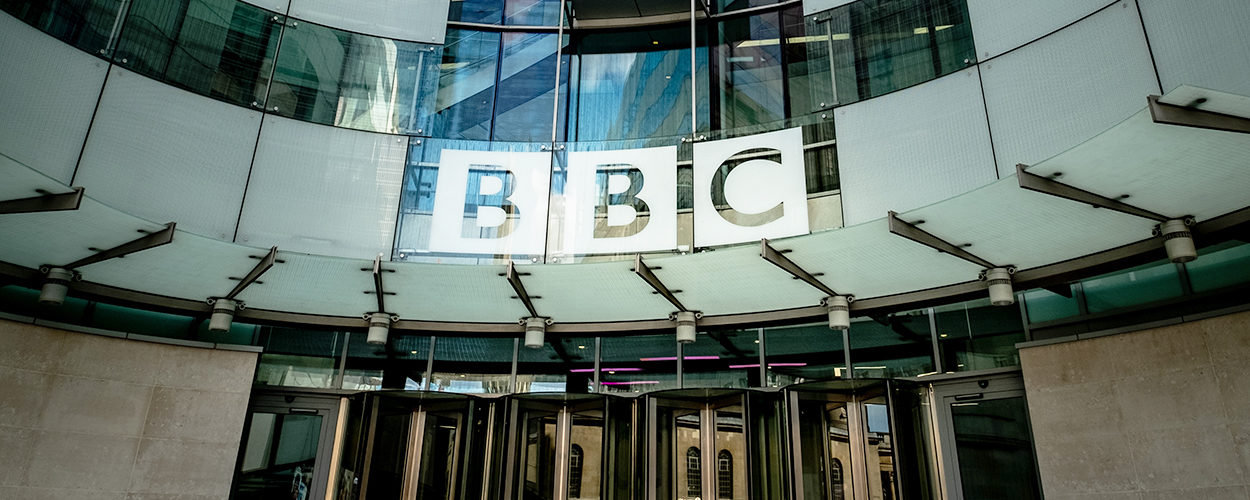This website uses cookies so that we can provide you with the best user experience possible. Cookie information is stored in your browser and performs functions such as recognising you when you return to our website and helping our team to understand which sections of the website you find most interesting and useful.
Business News CMU Digest
CMU Digest 23.01.22: BBC, FAC, Epic, Jimi Hendrix, youtube-dl
By Chris Cooke | Published on Sunday 23 January 2022

The key stories from the last week in the music business…
The future of the BBC was back in the spotlight after UK culture minister Nadine Dorries suggested that the TV licence fee that funds it could be scrapped in 2027. Her comments came ahead of confirmation from her department that the licence fee will be frozen for at least two years, meaning the BBC’s income will decrease in real terms. Budget cuts at the BBC in the short term – and any fundamentally new funding model when the Royal Charter that enables the licence fee comes up for renewal in 2027 – could have a significant impact on the broadcaster’s music output, reducing its role in championing new talent and more niche genres, and impacting on the total royalties it pays into the music industry each year. [READ MORE]
The Featured Artists Coalition launched a 100% Venue Directory to celebrate UK venues that do not take a commission on merch sales. It follows an online debate last year instigated by Tim Burgess of The Charlatans which put the spotlight on venues that take a commission of any merch sales that take place on their premises. For many artists, profits from merch sales are key to making shows profitable. It tends to be larger venues that charge merch commissions – those venues often having deals with third party merchandising companies. Venues that do not charge such commissions were invited to include themselves in the FAC’s new directory. [READ MORE]
Epic Games submitted a new filing with the Ninth Circuit appeals court in the US in its ongoing legal battle over the Apple App Store rules. Epic – like many other app makers, not least Spotify – reckons those rules are anti-competitive, especially the rules that force all in-app payments to be made via Apple’s commission charging transactions platform, and ban the sign-posting of other payment options elsewhere on the internet. A Californian court did order that the latter rule be dropped, but it also rejected most of Epic’s other competition law arguments against Apple. In its filing with the appeals court, Epic argues that evidence presented in the lower court actually showed that Apple was in violation of US antitrust laws contained in the Sherman Act, even though the judge in that court ruled otherwise. [READ MORE]
The Jimi Hendrix estate went to a New York court seeking a declaratory judgement that two agreements reached in the 1970s with former members of the Jimi Hendrix Experience are still valid. Following Hendrix’s death in 1970, those two musicians – Noel Redding and Mitch Mitchell – ultimately signed agreements waiving any rights over the Jimi Hendrix Experience recordings in return for a one off payment. Neither Redding nor Mitchell ever raised any issues with those agreements prior to their deaths in 2003 and 2008 respectively. However, last year UK-based companies representing the estates of Redding and Mitchell suddenly told Sony Music, which distributes the Hendrix recordings, that they were owed millions in royalties from those records. The Hendrix estate wants the New York court to confirm that the 1970s agreements are “valid and enforceable”, and therefore the new royalty claims are “without legal foundation”. [READ MORE]
It emerged that the majors are suing German hosting company Uberspace because it hosts an official web page for youtube-dl, which allows people to download permanent copies of YouTube streams. There has been increased debate in the US of late over whether or not technologies like youtube-dl breach copyright laws that prohibit the circumvention of technical protection measures designed to stop people downloading copyright protected content. Some argue that YouTube doesn’t actually have any technical protection measures of that kind, because if you know what you’re doing you can download content from the YouTube website via a web browser. The US record industry has previously cited precedent in the German courts to back up its arguments that YouTube does in fact have technical protection measures, which makes it interesting that the labels are now suing Uberspace in Germany. Though, even if the German courts conclude that youtube-dl does circumvent a technical protection measure, Uberspace will likely argue that it can’t be liable for that by simply hosting the youtube-dl web-page, especially as it doesn’t actually host the youtube-dl code. [READ MORE]





